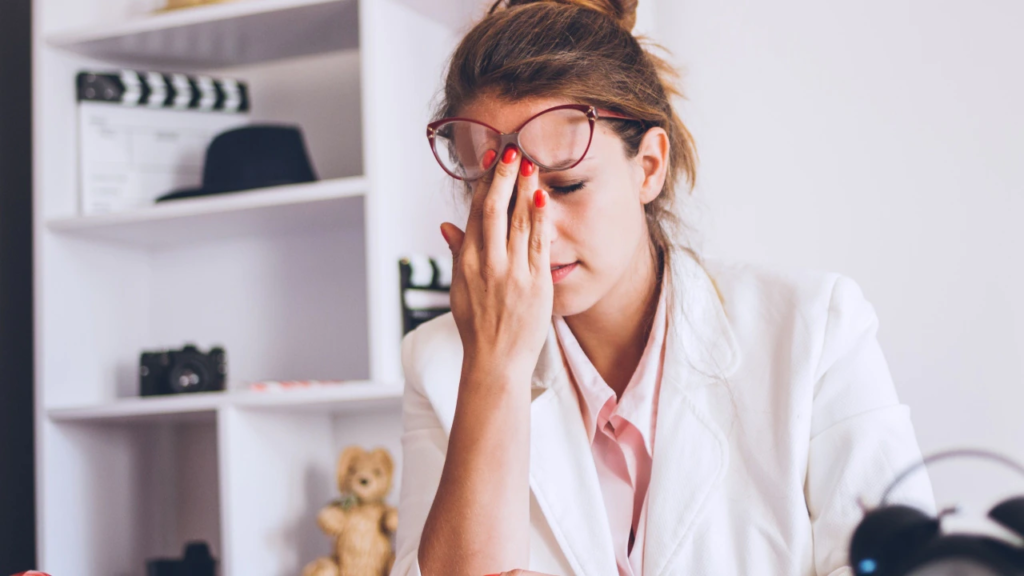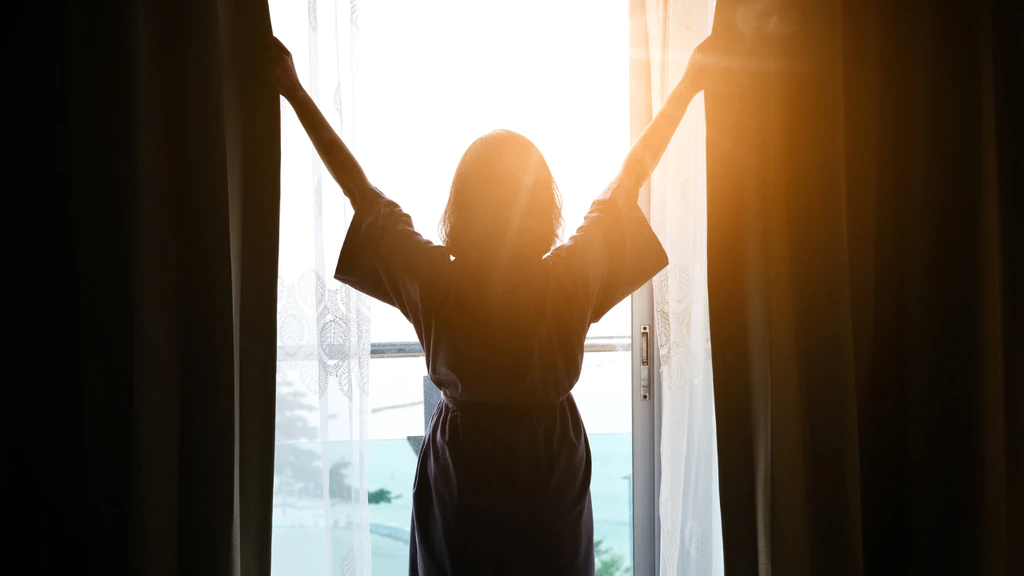Sleep: it’s free. And we all want more of it, so why is it so hard to get? Specifically – that consistent, restorative, uninterrupted, eight-hours-a-night kinda sleep. Which is why we’ve enlisted Sydney-based sleep expert Olivia Arezzolo to solve our myriad of sleep concerns with our Sleep Well Wednesdays series. Check back every fortnight and you’ll be off to the land of nod before you know it.
Your body is not designed to sleep throughout the day. Sure, a nap here and there is fine, but to have your primary sleep during daylight hours does not align with your human biology, circadian rhythm or evolution.
Fundamentally, darkness signals to the body that it’s time to rest, via the production of melatonin, the sleepiness hormone. In fact, this is so ingrained in our biological makeup that this persists even in the absence of light.
According to an interview with Cabinet Magazine, Michael Siffre spent 63 days in a cave in 1962, and irrespective of light and dark signals, he fell asleep at about the same time each night.
Those who are required to sleep during the day have an inherent, uphill battle so here are five tried and tested tips to help shift workers sleep well.
1. Do not sleep 8 hours on your last night of shift work.
After working with many shift workers and seeing their results, this trick has to be the most significant. On the last morning of ‘day sleeping’, limit your sleep to three hours, maximum.
In doing so, you arrive to your next night’s sleep more fatigued than usual, and will more easily fall back into a pattern of sleeping at night. If necessary, feel free to take a nap in the afternoon to see you through, provided it’s less than 30 minutes and before 3:30 pm.
Intertwined in this principle is the advice to be gentle on yourself during that day as you will be suffering the effects of sleep deprivation.

2. Use melatonin for daytime sleep
Though melatonin, our primary hormone to help us fall and stay asleep, can help most individuals sleep better, clinically, its primary application is for shift workers.
Melatonin is produced on a 24-hour clock, peaking at the same time each evening, and in switching your sleeping hours so significantly; the body does not produce the hormone at the right time, resulting in light, unrefreshing sleep.
In light of this, supporting the natural production of your sleepiness hormone with a synthetic version is something I highly recommend, provided you have approval from your trusted health professional first.

3. Darkness is key
In order to support the natural production of melatonin, make your room dark! Super, super dark. Remember that in darkness, melatonin rises, so do all that you can in order to trick the body into believing it’s dark outside, including introducing blackout blinds and an eye mask.
4. Practice a bedtime routine
Though it might be tempting to kick off your shoes and dive straight into bed after a night of working, you still need a proper bedtime routine.
While you may not be able to satisfy all of my recommendations, one hour of tech-free time before bed, a shower, a sleep supplement, and eye mask are non-negotiables.
If this sounds like a tough ask, don’t worry, you won’t get it right 100 per cent of the time, but having this plan will support your sleep success.

5. Avoid shift work, if you can
I know this is not feasible for most shift workers, but it needs to be mentioned, that if it’s possible to avoid shift work, do so.
We are simply not designed to sleep through the day, and if we do so consistently, we are more likely to suffer ill health. There is evidence to suggest that one in five shift workers experience insomnia, which is twice as many as non-shift workers.
Emotionally, A 2019 academic paper tracked the emotional impact of shift work, finding that women are 28 per cent more likely to experience adverse mental health conditions, and 33 per cent are more likely to experience depression.
A 2018 meta analytic data of over 3,909,152 shift workers found that long-term shift work in women increased the likelihood of cancer by 19 per cent.
While male shift workers are still at risk for poor mental health and cancer, the negative effects are magnified for women, so ladies, please take care.

+ show Comments
- Hide Comments
add a comment